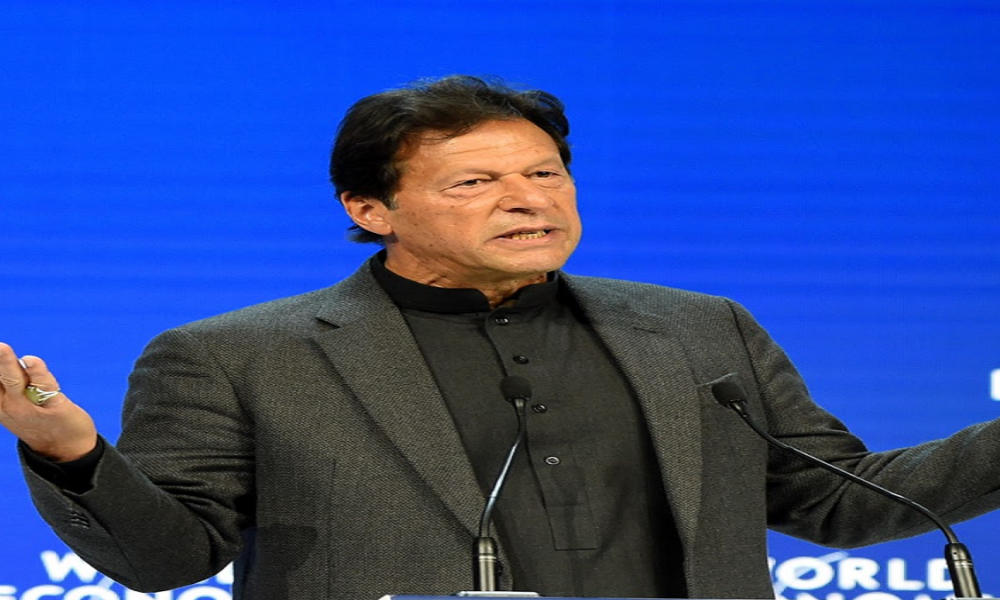Pakistan Prime Minister Imran Khan’s bid to raise the Kashmir issue during the OIC meet on Afghanistan suffered a setback, with the UN, US, EU and some other non-OIC states’ observers, who were also in attendance, asking the delegates to turn their focus on terrorism and unnecessary interference in the war-ravaged country. “Obviously, it was a stern message for Pakistan whose intelligence agency ISI chief had held several meetings with the Taliban and other insurgent leaders for several days ahead of the formation of government in Kabul,” sources told The Daily Guardian.
Top diplomatic sources told The Daily Guardian that the US and European Union envoys along with some of the 57 members of Organisation of Islamic Cooperation (OIC) who met on Sunday did not pay any attention to Imran’s utterances on Kashmir, and rather asked the attendees to focus on humanitarian issues and terrorism in Afghanistan. Observers believe that under the garb of humanitarian issues Pakistan was trying to push Kashmir and other political agendas. Under pressure from international community, Imran mentioned the presence of Islamic State (IS), saying that the terror outfit can be handled only if a stable government is in place in Afghanistan. Sources say that some members including an observer referred to former Afghan President Hamid Karzai’s remarks “saying that Afghanistan has been facing ISIS’ threat from Pakistan.” The UN, US and EU observers later met with the Taliban delegation on the sidelines of the OIC meet.
Indian diplomats see some of the points in the 31-point OIC resolution as a message to Pakistan. “The summit reaffirmed the importance of combating terrorism in Afghanistan and ensured that Afghanistan’s territory is not used by any extremist group or organization as a platform or safe haven. Moreover, it urged the international community to be cautious against the possibility of provocations inside and outside the country and the role of spoilers. These two points are also a message for Pakistan. Islamabad’s political, military and intelligence leaderships have been constantly trying to influence every single internal matter of Afghanistan, and the former President Karzai has revealed it on several occasions,” said a diplomat.
Sources said that even as India made an outreach to the five Central Asian countries who have deep stakes in the stability of Afghanistan, a nervous Pakistan immediately decided to rally the support of Islamic countries in favour of Afghanistan. Similarly, when NSA Ajit Doval had hosted a regional security dialogue with Central Asian NSAs and top security officials of Russia and Iran on Afghanistan in November, the very next day Islamabad also hosted special envoys from US, China and Russia to discuss the Afghan situation in what was seen as Imran Khan’s panicky reaction. Again, Pakistan’s Afghan diplomacy is in parallel when it hosted an OIC meeting with several international observers in attendance. However, Imran’s bid to rake up the Kashmir issue to embarrass India turned out to be a faux pas by him.
What will hurt Imran all the more is that the positions taken on Afghanistan, terrorism and connectivity in the joint statement which was released after India-Central Asia Dialogue supporting India’s stance on these issues. What adds insult to Imran’s injury is that all the five Central Asian nations are OIC members, but their foreign ministers chose to attend the meeting in New Delhi instead. This underlined the level of importance that the Central Asian countries give to India. India-Central Asia Dialogue was attended by five Foreign Ministers from Kazakhstan, Kyrgyz Republic, Tajikistan, Turkmenistan and Uzbekistan. The meet was hosted by External Affairs Minister S. Jaishankar on Sunday.






















